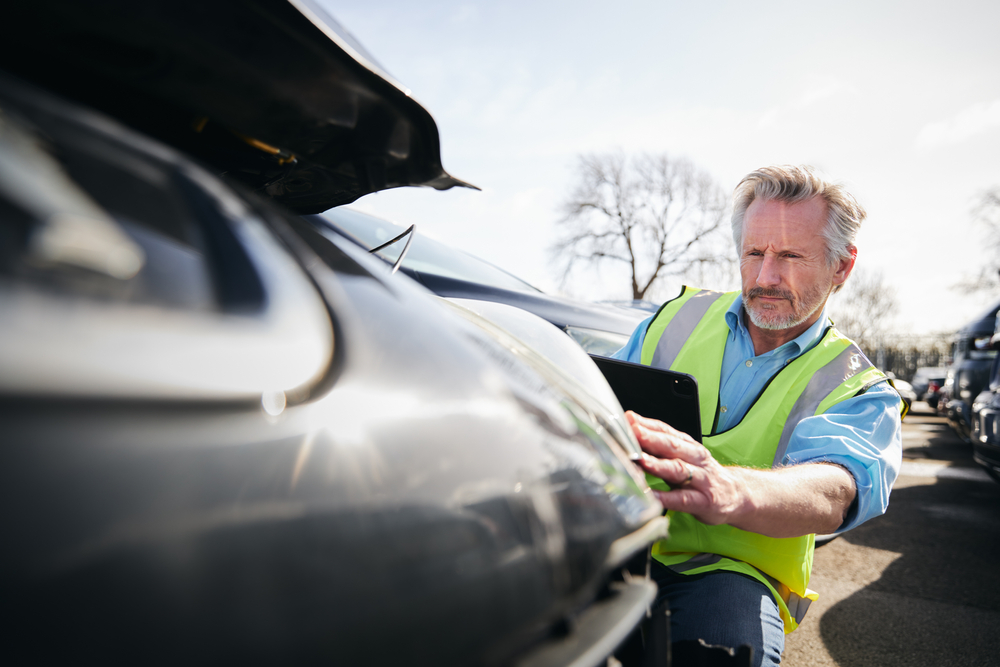Mama always said not to talk to strangers. It was good advice then, and it’s good advice now, especially if you’ve been involved in a car accident. Because odds are, that unknown number on your caller ID is an insurance adjuster calling you.
Let’s be clear about one thing: insurance adjusters aren’t there to help you in any way. They may seem friendly and chatty, and they may seem genuinely interested in your well-being, but don’t be fooled. They aren’t your friends. They work for an insurance company, and their job is to minimize the amount their employer pays out on claims.
Depending on the number of people involved in the accident, there will be at least two, if not more, insurance companies involved. Be cautious with each of them.
What to Say to Your Insurance Company After an Accident
After an accident, you need to call your insurance company and inform them about the accident as soon as possible. You’ll need to share specific information with them, including the location, date and time of the accident, and the people involved.
Be mindful, however, that even though you are their insured, your insurer has a financial interest in minimizing a payout to you. So, even with your own insurance company, avoid discussing your injuries or emotional state. Don’t authorize a blanket authorization to your past medical records. While your insurance company does need to see your medical records to verify your injuries for this accident, it doesn’t need to rummage through your medical history. It’s far better to contact an experienced personal injury attorney who can help you manage these matters first.
What to Say to the Other Party’s Insurance Company After an Accident
If you receive a friendly call from another insurance company, and often you will in the hours and days after an accident, be on guard. While you should be polite, you’re under no obligation to speak to this person. Often, it’s in your best interest to find an experienced personal injury attorney and have your attorney speak to the insurance adjuster instead.
But if you do talk to the insurance adjuster, stick to these rules.
1. Don’t agree to be recorded.
Often the insurance adjuster will casually say or ask that the call is being recorded. Politely decline. Regardless of what they say, there’s no benefit to you in having your statement recorded. Verbal statements are rarely as precise, complete, and considered as written statements. Tell them you will discuss the facts “at the appropriate time.”
2. Don’t get into any specifics about the accident or your injuries.
You can give them your full name, address, and phone number. You can provide basic facts: the location, date and time, the vehicles involved (if it was a car accident), and any witness information you have. That’s it. Don’t share any more information at this time.
They’ll probably press you for more information about your injuries, even expressing care and concern for your welfare. Be polite, but don’t engage. Avoid making any statements about your current health. Even the seemingly casual question of “How are you?” can be used against you later if you automatically respond, “Fine.” Instead, tell them you will be in contact with them later when you have more information.
The general idea is to say as little as possible. Ideally, you’ll be able to have your attorney handle all communications for you.
3. Don’t say you’re sorry or admit fault.
Again, the insurance adjuster is looking for reasons NOT to pay you. Do not compromise your potential claim by making any statements to the insurance adjuster.
4. Take notes.
Get the full name of the person who called you, their title, the name of the insurance company, and their contact details. Then take notes on everything they say.
5. Don’t respond to quick settlement offers.
Insurance companies prefer to settle quickly and quietly. They’ll often make a lowball settlement offer in the first few days or weeks after the accident. It might seem tempting to accept quick cash, but it’s better to seek the advice of an experienced personal injury lawyer who can help you evaluate the offer and decide how much you should seek to compensate you for your injuries and damages.
So, listen to your mama’s advice. Instead of speaking to strange insurance adjusters, call a lawyer who can protect your rights. A knowledgeable personal injury lawyer will help you through the process and maximize your settlement.
The experienced personal injury lawyers at Hunter & Everage are ready to help you with your personal injury claim in Richmond, Virginia, and Charlotte, North Carolina.

